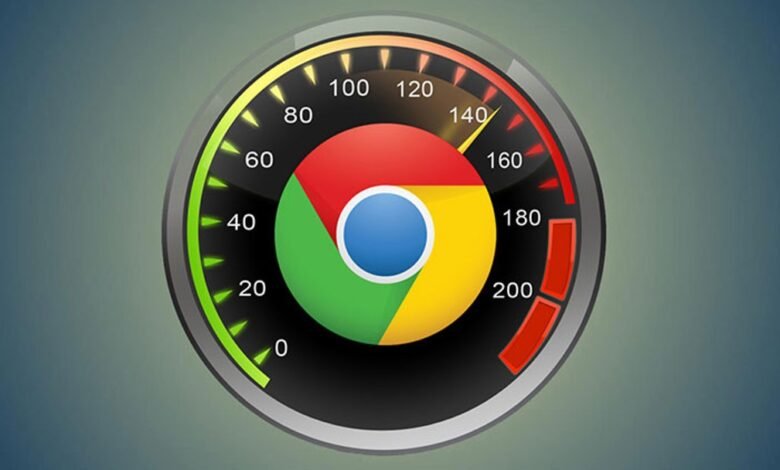3 Quick and Easy Ways to Speed Up Browser: Step by Step Guide

In today’s fast-paced digital age, optimizing your surfing experience has become paramount. As net customers, we depend closely on our browsers to get access to data, hook up with others, and perform various responsibilities online. However, encountering a gradual and slow browser may be relatively irritating, hindering productivity and performance. Therefore, in this newsletter, we will explore three short and easy methods to speed up your browser, making sure a smoother and more enjoyable online experience.
Speed Up Browser is not only about convenience but also about maximizing productivity and efficiency. Whether you are surfing the net for work, observation, or enjoyment, a fast and responsive browser could make all the distinction. By imposing those easy yet effective techniques, you can optimize your browser’s overall performance and streamline your online activities. So let’s dive in and discover the way to turbocharge your browsing in only a few easy steps.
3 quick and easy ways to speed up your browser
Clearing Cache and Cookies
One of the primary culprits behind a slow browser is the accumulation of cache and cookies over time. Cache files store temporary data from websites you visit, while cookies track your browsing activity. While these elements can enhance your browsing experience by storing information for faster retrieval, they can also bog down your browser when they become bloated.
What are caches and cookies?
Cache refers to the temporary storage of web documents and media files on your device to reduce loading times when revisiting a website. Cookies, on the other hand, are small pieces of data generated by websites to track user activity and preferences.
How Clearing Cache and Cookies Improves Browser Speed
Clearing cache and cookies regularly frees up valuable space on your device and prevents the accumulation of outdated or corrupted data. This, in turn, helps your browser load web pages faster and reduces the likelihood of encountering errors or glitches.
Disabling Browser Extensions
Browser extensions are handy tools that add extra functionality to your browsing experience, from ad blockers to productivity enhancers. However, having too many extensions installed can weigh down your browser and slow down its performance.
Impact of Browser Extensions on Speed
Each browser extension consumes system resources, such as memory and CPU usage, which can collectively degrade your browser’s speed. Additionally, some extensions may conflict with each other or with the Speed Up Browser itself, causing instability or crashes.
How to Identify and Disable Unnecessary Extensions
Identifying and disabling unnecessary extensions is essential for optimizing your Speed Up Browser performance and decluttering your browsing experience. Here’s a step-by-step guide on how to effectively identify and disable unnecessary extensions:
Open your web browser and navigate to the settings menu. This can usually be found by clicking on the three-dot menu icon in the top-right corner of the browser window. From the settings menu, select the option for “Extensions” or “Add-ons.” This will take you to a page where you can manage your browser extensions.
On the extensions page, you’ll see a list of all the extensions installed in Speed Up Browser. Take some time to review this list carefully. Look for extensions that you no longer use or ones that serve a redundant purpose. These are the extensions that you’ll want to consider disabling.
Alternative Solutions for Essential Extensions
When it comes to essential browser extensions that you rely on for your daily tasks, there are several alternative solutions to consider. Here are some options to explore:
Choose Lightweight Alternatives
Look for alternative extensions that offer similar functionality but have minimal impact on your browser’s performance. Search for lightweight extensions that prioritize efficiency and resource usage, ensuring that they do not slow down your browsing experience. Read user reviews and ratings to find extensions that are highly rated for both functionality and speed.
Disable Extensions When Not in Use
If you have extensions that you only use occasionally, consider disabling them when they are not actively needed. Disabling unused extensions can help free up system resources and improve your browser’s performance. Most Speed Up Browser allow you to easily enable or disable extensions with just a few clicks, making it convenient to manage your extensions as needed.
Updating Browser and Plugins
Regular software updates are essential for maintaining optimal performance and security, and web browsers are no exception. Outdated versions of your Speed Up Browser and plugins can introduce vulnerabilities and compatibility issues that impact speed and stability.
Importance of Updating Speed Up Browser and Plugins
Browser updates often include performance optimizations, bug fixes, and security patches that enhance overall stability and speed. Similarly, updating plugins such as Adobe Flash or Java ensures compatibility with the latest web technologies and reduces the risk of exploitation by malicious actors.
How Outdated Software Affects Browser Performance
Outdated browser software and plugins may struggle to render modern web content efficiently, leading to slower load times and increased resource usage. Moreover, unsupported software versions are more susceptible to security vulnerabilities, putting your data and privacy at risk.
Steps to Update Browser and Plugins
Updating your browser and plugins is crucial for ensuring optimal performance, security, and compatibility with the latest web technologies. Here are the detailed steps to guide you through the process:
Check for Speed Up Browser Updates
Open your browser and navigate to the settings menu. Look for the “About” or “Help” section, which typically contains information about the current version of your Speed Up Browser. Click on the option to check for updates. The Speed Up your Browser will automatically search for the latest version available. If an update is available, follow the prompts to download and install it. Depending on your Speed Up Browser settings, updates may be installed automatically.
Enable Automatic Updates
To ensure that your Speed Up Browser stays up-to-date automatically, consider enabling the automatic update feature. In the settings menu, look for the section related to updates or advanced settings. Enable the option for automatic updates if available. This will allow your Speed Up Browser to download and install updates in the background without requiring manual intervention.
Update the browser manually.
If automatic updates are disabled or not available for your browser, you can still update it manually. Visit the official website of your Speed Up Browser (e.g., Chrome, Firefox, or Safari) and navigate to the download page. Check if a newer version of the browser is available for download. If so, download the installer file. Run the installer and follow the on-screen instructions to complete the update process. Your Speed Up Browser will be updated to the latest version.
Restart Browser and Verify Updates
After updating your browser and plugins, it’s essential to restart your browser to apply the changes fully. Once your Speed Up Browser has restarted, revisit the settings or about section to verify that you are now running the latest version. Test your Speed Up Browser performance and functionality to ensure that the updates have been successful.
Read More: How Energous and identiv boost efficiency and precision
Conclusion
Optimizing the velocity of your browser is important for a seamless and green online experience. By imposing the 3 brief and clean methods mentioned in this article—clearing cache and cookies, disabling unnecessary extensions, and updating your browser and plugins—you may significantly improve your browsing performance. These techniques not only improve velocity but also make a contribution to higher safety, balance, and common usability.
Remember, normal upkeep is key to maintaining your browser and walking easily. Make it a dependancy to clean cache and cookies, review and disable pointless extensions, and keep your browser and plugins up to date. By taking proactive steps to optimize your surfing experience, you may revel in faster load instances, smoother navigation, and accelerated productivity.
FAQs
Why is my browser so slow?
Several factors can contribute to slow browser performance, including cache buildup, excessive extensions, and outdated software.
How often should I clear my browser’s cache and cookies?
It’s recommended to clear the cache and cookies periodically, such as once a month, to prevent performance degradation.
Can I speed up my browser without sacrificing functionality?
Yes, by disabling unnecessary extensions and choosing lightweight alternatives, you can optimize performance without compromising functionality.
Do browser updates affect my browsing experience?
Browser updates are designed to enhance performance, security, and features, so keeping your browser up-to-date is beneficial for an optimal browsing experience.
Are there any risks associated with updating browser plugins?
While updating plugins is generally safe, it’s essential to download updates from trusted sources to avoid malware or security vulnerabilities.











